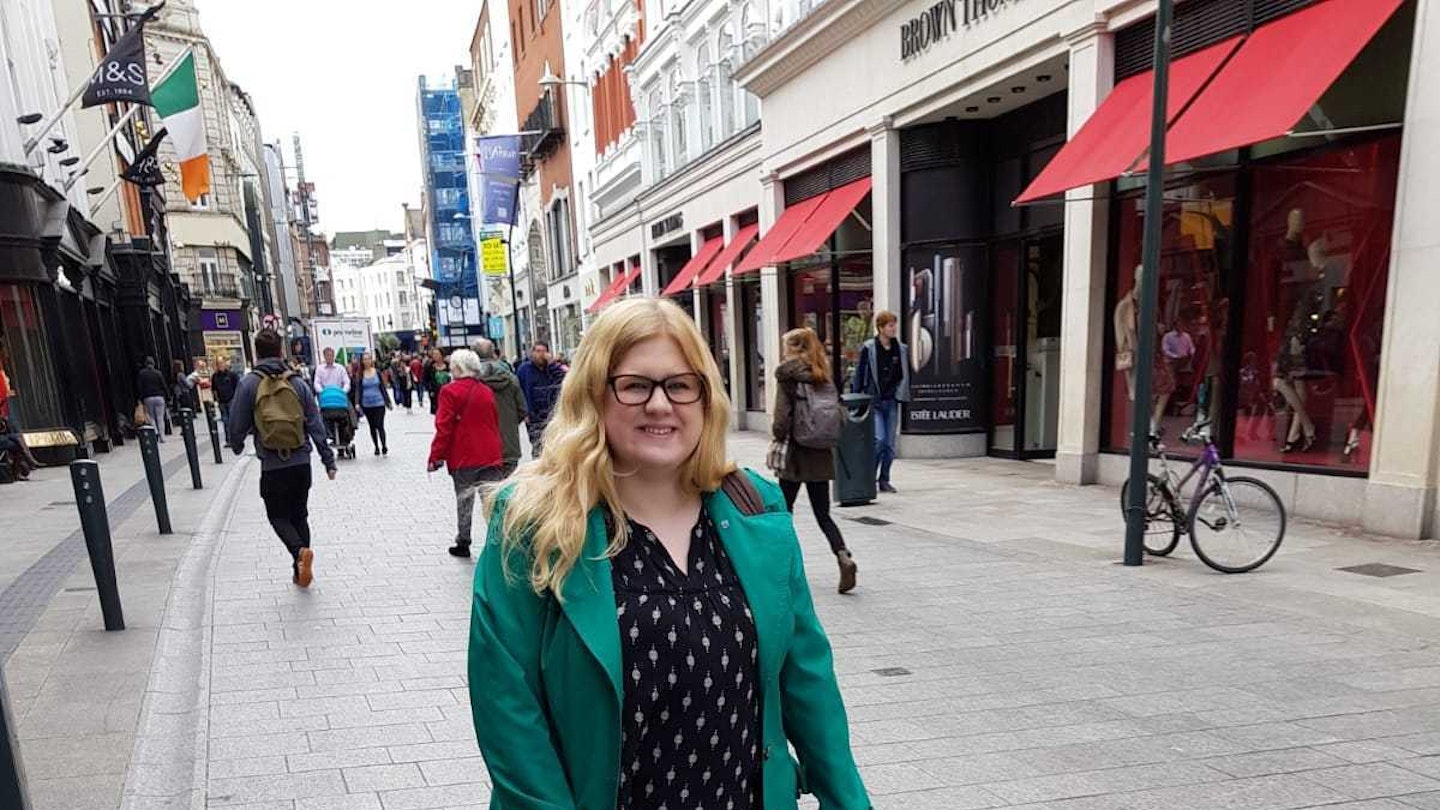Amy Kavanagh, a visually impaired woman who uses a white cane, is fed up with being touched by strangers every day. ‘For me, I don't know whether the next person who touches me is trying to steal my bag, grope me or help me across the road,' she tells Grazia over the phone. Amy has been pushed into busy roads, unwillingly pulled onto trains and essentially kidnapped by strangers who insist they are helping. ‘One woman wouldn't let go and I started to get upset,’ she explained. ‘People don’t realise that by taking hold of someone in the street and not letting them go, legally that’s kidnapping.’
‘The scary thing is how unpleasant people can get,’ Amy continues, citing a time where a man threatened to throw her out under a car because she didn't want his help crossing the road. She believes that situations such as this happen because of society’s internalised ableism. ‘To onlookers you are an ungrateful disabled person and you're in the wrong,' she says.
On one occasion, Amy was groped and then followed by a man who claimed he wanted to ‘take care’ of her. ‘I was terrified, because he was following me and he wouldn't leave,’ she explains. ‘It was really frightening. I don't like to think of myself as vulnerable, but I am vulnerable if someone takes me off to a place where I don't know [so] I can't escape.'
Amy explains that people are either aggressive or sexually abusive to her about twice a month while she navigates the streets of London. ‘They rely on the fact that I can't get away easily, that I won't be believed because I can't identify them,’ she says, adding that the police have been ‘rubbish’ - ‘I have been told that I am confused, that it's just homeless people.’
Amy’s experiences of non-consensual touching have left her feeling ‘so anxious’, she’s now taking medication. She has also had to modify her behaviour while out and about in London. ‘I have to be a shark, always moving,’ she adds. ‘The moment I stop, people descend on me.’
After Amy began speaking about her experiences on Twitter, (she started a ‘just don’t grab’ hashtag that encourages people to ask disabled people whether they actually need help) an academic called Dr Hannah Mason-Bish got in touch. She explained that there was no research into disabled women experiencing sexual harassment and hate crime.
‘Disabled women's voices have been left out of things like Everyday Sexism, #MeToo and Time’s Up,’ Amy explains. ‘It is a cultural taboo,’ she says, explaining that there is a ‘double level’ of disbelief with disabled women, as people ‘think you’re more protected'.
Amy and Hannah felt it was important to give disabled women ‘a space to share these stories’ and ‘to say this happens to me'. Their blog, entitled Private Places, Public Spaces{
Through sharing these stories, Amy wants people to think about their actions around disabled people. ‘I want people to ask for people’s consent before touching them, regardless of what they think the situation is,’ she says. ‘I want the perpetrators to know that they're not going to get away with it. The more that we make people feel that this is an issue that people are aware of, they will be less inclined to do it.’
‘I want to give disabled women a voice, to be heard and be believed and share their experiences and have that support of community,’ she adds. Amy has been communicating with a campaign called Our Streets Now, run by sisters Maya and Gemma Tutton, which is trying to make street harassment illegal.
‘We are trying really hard on this campaign to put to the forefront that disabled women are twice as likely to experience sexual assault and harassment,' Maya told Grazia. ‘It is something we don't speak about, so we are trying to raise awareness of all these issues.’
At present, there are legal loopholes that prevent people being prosecuted for non-consensual touching. To raise awareness and to help make street harassment illegal, sign the Our Streets Now petition.
READ MORE: An Online Community Are ‘Pimping’ Their Mobility Aids To Change The Conversation Around Disability
